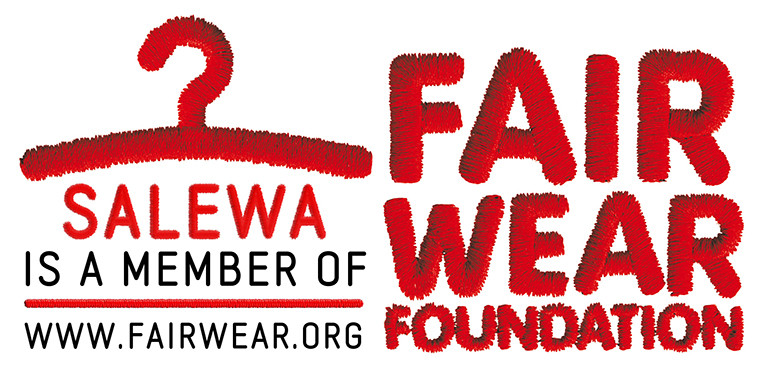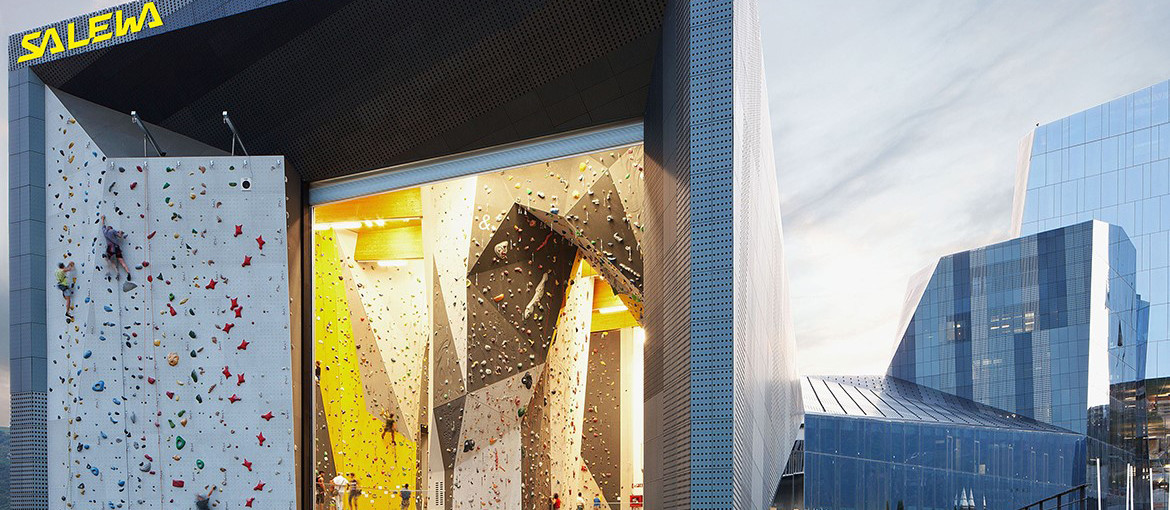SALEWA RECEIVES FAIR WEAR FOUNDATION LEADER STATUS
Combining forces, a strong sense of responsibility and desire to promote change can lead to success.The Fair Wear Foundation (FWF), a non-profit organisation, has confirmed that the Oberalp Group is making an outstanding commitment to ensuring fair working conditions at its suppliers. In September 2018, the South Tirolean group with the brands SALEWA, DYNAFIT and WILD COUNTRY was once again awarded Leader status. The Fair Wear Foundation works to promote decent working conditions in the textile and clothing industry. Its members are monitored and evaluated against a set of rigorous indicators. The Leader category is for those members who are doing exceptionally well and operating with high transparency in their supply chains and showing best practice with their international production sites.
< Since 2013, the Oberalp Group with its brands SALEWA, DYNAFIT and WILD COUNTRY has been a member of the foundation that works to verify, implement and improve social standards in textile production and conditions for garment workers around the world. Manufacturers pledge to implement the strict FWF Code of Labour Practice at all their production partners. This includes, for example, fair pay, reasonable working hours and safe and healthy working conditions. The FWF conducts regular audits to ensure that the Code is being adhered to. At the Oberalp Group, the growing team responsible for sustainability and social responsibility is delighted by this success. In addition to the great team spirit at the company, continued transparency, close working together with suppliers and cooperation with other brands resulted in this renewed Leader status – the highest FWF category. In particular, the Fair Wear Foundation praised the way that these values are integrated into the company structure, both at management and operational level. According to the FWF Brand Performance Check 2018: “SALEWA, DYNAFIT & Wild Country has put into place efficient and systematic processes for doing due diligence on its suppliers both prior to starting production and once a partnership has started. Monitoring of progress on corrective action plans is systematic and detailed, and the CSR department engages with all levels of the organisation to ensure a high level of knowledge and commitment to the code of labour practices.”
Ruth Oberrauch, member of the owner family and actively involved in the companies CSR work, explains how the fundamental idea of responsibility underpins everything the company’s management team do: „We want to give back part of what we receive – and are very aware of our role in the value chain. We are committed to making our supply chain part of our Corporate Social Responsibility and raising awareness throughout the company and in our partner companies. As such, the CSR team calls for all departments to make this part of their daily operations.” Marie Mawe, who heads the Oberalp Group CSR team, explains: „In 2013 we chose to partner with the most rigorous labour conditions expert in textiles that we know of: Fair Wear Foundation. With workers’ unions and NGOs on its board, workers’ interests are always represented. This also means that they have high expectations on member brands like us. And the requirements actually get tougher every year. We can never relax or say we’re done. But that’s also what we like about them. Because in the end, we all want to see a textile industry where things really change for the better.” The work of the Oberalp Group CSR team is based on three areas. Continually investing in personnel and financial resources to monitor standards and improve the collaboration with its partners. The CSR Team has increased its involvement in this area since the company became a Fair Wear Foundation member in 2013. To be awarded Leader status, at least 90 per cent of production volume must be subject to FWF monitoring. The company hit this target for the first time in 2016, when 93 per cent of the mountain sports brand’s textile production was being monitored according to the FWF Code. Now, 97 per cent of its production is monitored and audited by the Fair Wear Foundation. Furthermore, the CSR team sees it as important to ensure transparent handling of working conditions at production sites and to communicate this via the brands’ communication channels. This transparency should also contribute to making further improvements. Moreover, the Oberalp Group has introduced labour law training for workers and will be expanding this through 2018 and 2019. By establishing a continuing open dialogue between company and suppliers, important standards such as working hours, payment of a living wage and social conditions can be addressed and improved. The group plans to continue to expand long-term relationships with its suppliers and consolidate to have a smaller, fairer working supplier base. Production sites in countries further from FWF standards are monitored and regularly visited by local inspection teams. Through health and safety training and fire prevention, plus worker education programmes in the factories, production sites in less developed regions also have the opportunity to develop and adapt step-by-step to meet acceptable standards.




